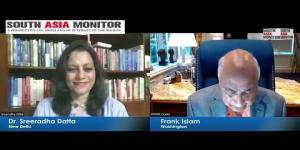
Pakistan Supreme Court ruling on May 9 riots has implications for civil-military relations
The Supreme Court’s decision reaffirms the pivotal role of the military in Pakistan’s national security framework. While civilian authorities are crucial, the military is often seen as the protector of the nation, especially during times of instability. The Court’s ruling underscores the importance of the military’s involvement in ensuring swift justice for those involved in anti-state activities, particularly when national security is at stake.

Atal Bihari Vajpayee: A prime minister who saw moderation in politics as a foundational principle
Vajpayee was known to speak slowly, sometimes with long pauses, because he chose his words with utmost care. But in those pithy but strong words lay Vajpayee's innate convictions about his 'idea of India'

One Nation, One Election: Staggered electoral cycle important safeguard of India’s federal structure
The leitmotif of ‘One Nation’ is strongly aligned with the BJP’s policy and rhetoric; consider the 2017 introduction of the Goods and Services Tax (‘One Nation, One Tax’) and the abrogation of Article 370 in 2019 (‘One Nation, One Constitution’). The ONOE falls within this inherent paradigm: an overpowering centre under the guise of administrative cost-cutting and electoral efficiency.

Kolkata rape and murder case: Confronting our collective failures
The medic rape-murder case, which captured global attention in an era dominated by the attention economy, had the potential to ignite systemic reforms, given the brutality of the crime. The movement, like many before it, held the power to expose the moral failings of the ruling party in the state. Yet, as so often happens, it faltered within a couple of months—or perhaps was made to falter. Herein lies an uncomfortable reality: we, the aam aadmi (common man), must share the blame.













































